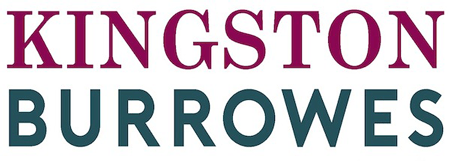OCT 2022 UPDATE: Please note that in October, the Government subsequently announced that the NIC increases outlined below would be reversed from 6 November 2022 and the associated Health and Social Care Levy, due to be introduced in 2023 will be scrapped.
Dividend rates, however will remain 1.25% higher until further notice.
After much speculation, it was confirmed by Boris Johnson that National Insurance contributions (NICs) will be increased by 1.25% from April 2022. The rise will affect both employers, employers and the self-employed and will mean that those above the minimum thresholds will make higher contributions.
So, let’s review why the rise is being made and how the change might affect you.
Why is the Government raising National Insurance?
The increase is being made to address social care funding issues, and the additional tax of around £12 billion annually, will initially be devoted to addressing the NHS backlog, following which, the long-standing issue of UK care costs will be addressed.
It is estimated that 1.5 million people in England alone do not get the care that they need and can pay up to £100,000 of their own money on social care, a figure that is not supposed to exceed £50,000.
The Government hopes that these Health care reforms will ensure that no one in England will need to pay more than £86,000 in care costs over the course of their lifetime (equal to around three years in care). This figure will not be affected by age, location, health, or earnings. Additionally, for those with less than £20,000 in assets, the Government will cover all care costs. Individuals with assets of £20,000 to £100,000 will need to contribute to their care costs but will also receive means tested Government support.
How do the NIC increases affect employees?
For those on the Pay As You Earn (PAYE) scheme, monthly NI contributions will continue to be deducted before pay is received, and these deductions will be displayed on the employee pay-slip.
A couple of examples relating income and the increase in real terms are as follows:
- For an individual earning £30,000 – NI contributions will increase by approximately £255 annually
- For an individual earning £100,000 – NI contributions will increase by approximately £1,130 annually
How are employers affected by the increase?
Employers are also faced with a 1.25% National Insurance contribution increase, with their rates effectively increasing from 13.8% to 15.05%.
In 2023 the additional 1.25% will be collected as a separate Health and Social Care Levy, and the NICs will effectively revert back to 13.8%.
Does the increase affect Company Directors?
If you have a Limited Company and you are taking a Director’s salary through that company, then you are classed as an employee and you are subject to NICs in the same way.
Changes to Dividends
Dividends will also see a 1.25% increase. While the annual tax-free allowance of £2,000 remains, tax rates beyond that will rise. The basic rate on dividends increases from 7.5% to 8.75% on total income up to £37,700. For total income between £37,701-£150,000 the new rate of dividends tax will be 33.75%.
How Can We Help?
As shown, the NIC increases will affect many individuals. At Kingston Burrowes we provide support from personal tax advice, through to management accounts for large businesses. We also offer payroll and PAYE support, with specialists who are experts in calculating pay, pension, income tax and national insurance. Our payroll service is flexible, ensuring that we can deliver only what you need and with the best service possible.
If you need more advice on the latest tax increases or any other aspect of tax, accountancy or payroll, don’t hesitate to get in touch with our friendly team.




